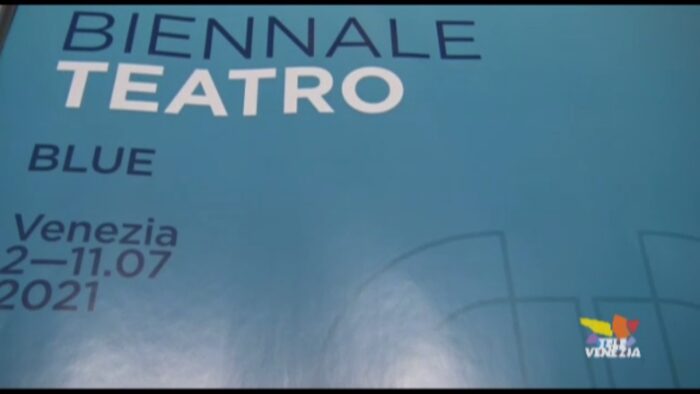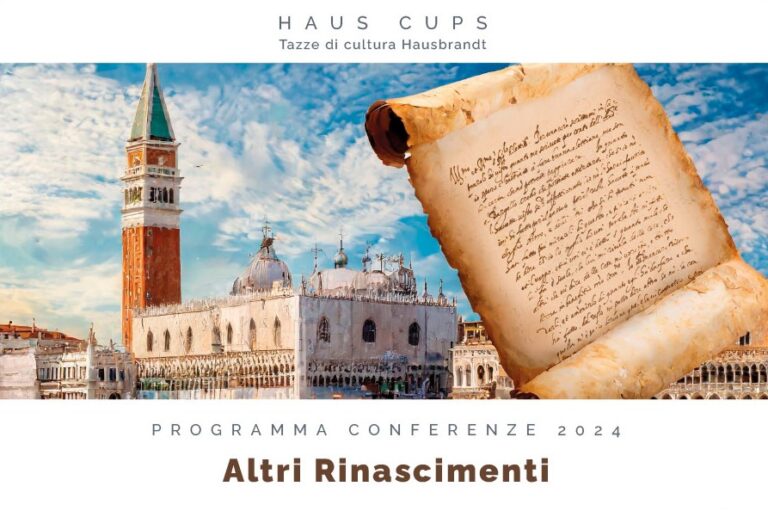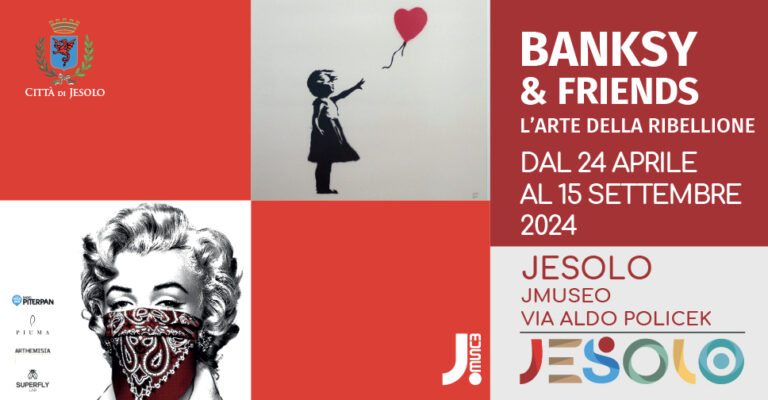BIENNALE THEATER 2021
BLUE
Stefano Ricci and Gianni Forte (ricci / forte) have chosen a palette of colors to compose, thinking of Balzac’s Comédie humaine, the story in four parts of their Biennale Teatro. And blue, in all its nuances, will guide the 49th International Theater Festival of the Venice Biennale, on stage from 2 to 11 July.
“Why do we start from the blue? Because melancholy, isolation and death have arrested us: the silence of empty theaters could be painted with the blue of a cold that envelops all the workers and artists of the show now at home for months … Blue will be this 2021 edition of the Biennale Theater: a work of reflection on the awareness of a new beginning, on the artistic helm aimed at rediscovering this island that does not exist (erased from the routes by a rubber bread pandemic) and to re-establish, with this germinating expressive outbreak, a new cultural Renaissance to place once again the theatrical art in the place it deserves, in us, in the eternal magnificence of the divine ”.
Krzysztof Warlikowski, Kornél Mundruczó with the Proton Theater, Roberto Latini, Kae Tempest, Thomas Ostermeier and Edouard Louis, Danio Manfredini, Francesco Pititto and Maria Federica Maestri di Lenz Foundation, Agrupación Señor Serrano, Filippo Andreatta and his Office for Human Theater, Adrienn Hód, Paolo Costantini are the artists on stage in Venice. Alongside some of the invited directors, other artists and specialists will be masters for the Biennale College masterclass program: Martin Crimp, Chiara Guidi and Galatea Ranzi, Leo Muscato with Nicole Kehrberger and maestro Riccardo Frizza, Monica Capuani, Andrea Porcheddu, Davide Carnevali .
THE SHOWS
The Krzysztof Warlikowski Festival, Golden Lion for Lifetime Achievement, opens with a novelty for Italy: We are Leaving, adaptation of Suitcase Packers by Hanoch Levin, one of the major Israeli theater authors. “The best staging of Warlikowski in recent years” according to Le Monde, We are Leaving is a choral show, steeped in black humor that turns into tragedy, in which going towards a hypothetical better world that continually entangles itself in a “false movement ”, Becomes a symbol of a human condition. On stage a small community with its daily stories made up of resentments and tensions ready to explode, a mosaic of characters that Warlikowski blocks as in a sort of “hypnotic hyperrealism” in a choreography of gestures, tics, postures.
The viewer Kornél Mundruczó strikes to the heart, bringing to the stage a world of brutality and prevarication that opens into the abyss of man to question himself about freedom and destiny, good and evil. It’s Hard to be a God, premiered in Italy at the Biennale with the independent company Proton Theater founded in 2009 by Mundruczó himself, a director with a powerful sign whether he deals with cinema, theater or opera. Everything takes place inside two freight trucks parked in a suburb, a free zone where anything can happen, including human traffickers, snuff movies and prostitution. The narrative machine is set in motion by playing on the perceptual displacement of the different media skilfully crossed by the Hungarian director and on twists that suddenly overturn situation and perspective.
The world of the last is also at the center of Roberto Latini’s show, an artist who has made the voice-word-sound relationship one of the cornerstones of his research, now in dialogue with the unique mixture of an extreme novel by Giovanni Testori, In exitu. To the Lombard poet’s theory of stray characters from the Milanese hinterland In exitu adds the young drug addict Riboldi Gino, caught in the last, harrowing moments spent in the bathrooms of Milan Central Station. “In exitu it is like a Pietà. The parabolic parable lived by Riboldi Gino is that of a poor Christ held in the arms of Madonnas imagined, breathed, disjointed, in the phonetics of a diction solicited to the point of embarrassment between sounds and meaning, as if the words were finally deposited from the cross on which Testori nailed them ”(R. Latini).
It is with the Kae Tempest Silver Lion that the most ancient art of poetry, in its original dimension of oral story, is transformed into burning energy, a necessary and authentic narrative that mixes the metrics of poetry with rap rhythms. Poet, author for the theater and of narrative texts that have climbed the charts and collected prizes, rapper and performer of crowded readings, Kae Tempest, born in 1985, will be in Venice in the live performance of The Book of Traps & Lessons in first for the ‘Italy. “Kae Tempest bravely deals with poverty, social classes, consumerism – writes the Guardian. In a way that not only avoids the pitfalls and risks of banality, but even makes them beautiful, drawing on ancient mythology and homiletics to tell everyday stories ”.
Also Thomas Ostermeier with the show Qui a tué mon père feels the need to return to the very essence of theater, “to the man who speaks to a group of men who have gathered to listen to him” (T. Ostermeier). He does so with an autobiographical text entrusted to the interpretation of the same author who then reduced it for the scenes, as in a game of mirrors: it is Édouard Louis, who exploded onto the literary scene with Farla finita with Eddy Bellegueule. His second novel, Qui a tué mon père is an indictment complete with the names and surnames of those politicians and statesmen who destroyed welfare by bending the body and dignity of the most fragile, excluded from history like his father, who grew up in a reality that is already condemning. “The decisions of politicians can affect the lives of the least. How to have a certain body – black, female, transgender. A body and its decay that reflects the history of the last thirty years in France “(E. Louis).
A theater that becomes a painful song for Danio Manfredini, a rare and secluded figure on the contemporary scene who has also influenced generations of actors, author and interpreter in Venice alongside the musician and multi-instrumentalist Francesco Pini of Nel lago del cor. The Dante’s suggestion of the title alludes to the sinking of memory into that hell on earth that were the concentration camps recalled in the show. With the words of Primo Levi, Hannah Arendt, Zalmen Gradowski that Manfredini weaves into a babel of languages, images, songs to say the unspeakable. Show that dedicates “to the survivors, because their words have been a guide” and as a “requiem to all those who have died without a trace”.
The question about life that is also a question about identity is the basis of Altro stato signed by Francesco Pititto and Maria Federica Maestri of Lenz Foundation, the leader of a research that blends writing through images and the plastic creation of space. Taken from Life is a Dream by Calderón de la Barca, an author who is a constant in the company’s research and the latest in a series of contemporary reinterpretations of classics. Another state is presented in the form of a solo played by “sensitive actress” Barbara Voghera, in which the figures of the servant Clarino and that of Prince Sigismund converge. Prince and servant chase each other in search of a single identity with the only certainty that “there is no escape from the force of fate and cruel fate”.
What is true in the times of post-truth is the crucial question at the origin of The Mountain, the latest work by Agrupación Señor Serrano, a company awarded in 2015 with the Silver Lion, creator of extraordinary scenic devices that mix virtual world and live performance , everyday technology and scale models, video projections and images in real time as different dramaturgical lines intersect. And in this case they are: the first Everest expedition attempted by Mallory in 1924 from which he will not go back leaving doubts about the result; the panic aroused by Orson Welles with his radio program The War of the Worlds, year 1938, the first example of the conditioning power of the media; Vladimir Putin who, like a master of ceremonies, speaks satisfied with trust and truth, reflects on the role of the media in telling the story … All between badminton players playing baseball, lots of snow, mobile screens and a fragmented vision of it. which happens on stage in the same way that reality presents itself.
Author of a zero grade theater, where even an immobile landscape can become a show shaped by sound, Filippo Andreatta is “the most experimental director who has met for many years now” (copyright Franco Cordelli), so much so that he is able to bring also a book on staged architecture, the cult of Rem Koolhaas Delirious New York. Founder of the Office for Human Theater (OHT) in 2008, Filippo Andreatta makes his debut in Venice with a new project premiered – music by Davide Tomat – which, to paraphrase Gertrude Stein, is entitled A theater is a theater is a theater is a theater . “A show that disappears. He escapes and tells nothing. At the center of the work is a void, an absence that allows the emergence of something we know but we no longer know how to see. By depriving the stage and the material that inhabits it of pre-established meanings, OHT pays homage to the theater for what it is: a theater is a theater is a theater is a theater… Scenes, skies, backdrops, lights, trusses, counterweights; each element becomes a voice to be listened to in purity. Voices audible because without words. Exactly like in the solfeggio where the notes materialize in the ear into themselves: do-re-mi-fa-sol-la-si “(F. Andreatta).
In addition to Mundruczó, the choreographer Adrienn Hód, multiple winner of the Rudolf Laban Award and since 2007 at the head of the young company Hodworks, around whose core revolves multidisciplinary artists, comes from an important and vital theatrical tradition like the Hungarian one.
“
Finally, Paolo Costantini, winner of the fourth edition of the Biennale College Directors, will present, produced by the Biennale itself, A foreign look (or how happiness has become an absurd claim), which finds its starting point in one of the writer’s most famous texts. Nobel Prize Herta Müller, Today I would have preferred not to meet, where an unnamed woman, summoned by a dictatorial regime, crosses the city sitting on a tram and reflects. “We believe that the suffocating atmosphere of the text – writes Costantini – is able to evoke the world we live in today. The frenzy of society and the pressure it exerts has transformed the way one perceives one’s life. The political dictatorship is replaced by a dictatorship of the frenzy of doing, in which time is more and more contracted. We find ourselves trapped inside self-generated neurotic cages, which manifest themselves in a thousand different forms, but whose common denominator is the relationship with time “.
BIENNALE COLLEGE THEATER
The Biennale College project according to the directors ricci / forte consolidates the idea of research and support for new talents by adding to the attention for directing and dramaturgy, especially Italian, the international call for performers, who will choose an unprecedented performative work in external , identifying topical places of daily lagoon life. Considering the great interest that performative authorship arouses today in the rest of the world, so deeply connected with the Visual Arts, those of Music and Dance, La Biennale di Venezia has considered it important and necessary to invite international artists to deal with a stage writing, like the site specific performative one, able to tell the instances of the contemporary.
Biennale College will therefore be divided into four sections: Italian directors under 35, Italian authors under 40, Italian and foreign performers under 40, masterclasses.
Directors, authors, performers
For the first three sections, the calls launched in December have collected 415 subscriptions from which they have been selected at the moment:
30 candidates for the call for directors under 35 from which, at the end of various selection phases, a single director will be awarded a production prize that will allow him to create, with the support of the artistic directors, his own show to be presented in the context of the Biennale Teatro 2022.
The current candidates are: Alessandro Biswas, Michele Brasilio, Filippo Capparella, Francesco Cecchi Aglietti, Annalisa Cracco, Ilenia D’Avenia, Marco Fasciana, Giovanni Firpo, Ruggero Franceschini, Francesca Gabucci, Federico Gagliardi, Gabriele Gerets Albanese, Emanuele Giorgetti, Simone Giustinelli , Giulia Grandinetti with Rodolfo Salustri, Virginia Landi, Andrea Lucchetta, Michele Mariniello, Francesca Merli, Olmo Missaglia, Giulio Nocera, Gabriele Paupini, Pier Lorenzo Pisano, Lorenzo Ponte, Alba Maria Porto, Alessandro Sanmartin, Elvira Scorza with Noemi Grasso, Matteo Spiazzi , Elena Zamparutti with Francesco Cocco, Francesco Zanlungo with Lara Barzon.
16 authors under 40, from which two winning authors will be chosen at the end of the selection phases, who will be able to present their original texts in the form of a scenic reading, in collaboration with a recognized theater training center, at the Biennale Teatro 2022.
The 16 authors currently selected are: Daniela Brunelli, Tolja Djokovic, Francesco Giuseppe Dossi, Noemi Giulia Fabiano, Emmanuele Ferrarini, Giacomo Garaffoni, Serena Guardone, Damiana Guerra, Emilio Marchese, Margherita Mauro, Chiara Migliorini, Piera Mungiguerra, Valeria Patota, Dario Postiglione , Valentina Virando, Giacomo Fiorenzo Zibardi. Their masterclass, conducted by Davide Carnevali for the entire duration of the Festival, will establish the two winning authors at the end of the same.
15 are the current candidates for the site specific performance, which will be followed by a second selection phase again during this year, at the end of which the two winners will be nominated, who will participate in the construction phase and will finally present their works at Biennale Teatro 2021.
The selected for this first phase are: Giulia Briata, Ivonne Capece, Simon Capelle, Stellario Di Blasi, Irene Di Lelio, Antonella Di Marti
no, Valentina Donati, Charlie Lana Rooy, Paolo Panizza, Giulia Perelli, Ulisse Romanò, Lara Russo, Pablo Tapia Leyton, Anna Terio, Maria Luisa Usai.
Masterclass
A masterclass program will cover the entire duration of the 49th International Theater Festival, involving audiences and professionals from all over the world for an in-depth reflection on making theater today. Because Venice and the Biennale are not only the stage for the presentation of shows, but also and above all the place for meeting, learning, practical training and discussion of the theatrical arts at an international level.
A program of masterclasses and round tables (on direction in opera and on theater and psychotherapy) which integrates with the program of shows and becomes an essential part of the Festival.
Masters for the artists who will be selected through an international call will be: Monica Capuani for theatrical translation, Martin Crimp for dramaturgy, Chiara Guidi and Galatea Ranzi for actors / performers, Leo Muscato with Nicole Kehrberger and maestro Riccardo Frizza for opera singers, Danio Manfredini on the poetic body, Krzysztof Warlikowski for directors / playwrights, Adrienn Hód for actors / performers, Andrea Porcheddu for theater criticism.
Read the Biennale College Teatro – Masterclass call.
ACKNOWLEDGMENTS
We thank the Ministry of Culture for the important contribution and the Veneto Region for the support given to the programs of the Theater Sector of the Venice Biennale.
Media partner of the Dance, Music and Theater Sectors is Rai Cultura, with its web portal and the Rai5 channel, it will follow the appointments of the Venice Biennale for 2021
.




